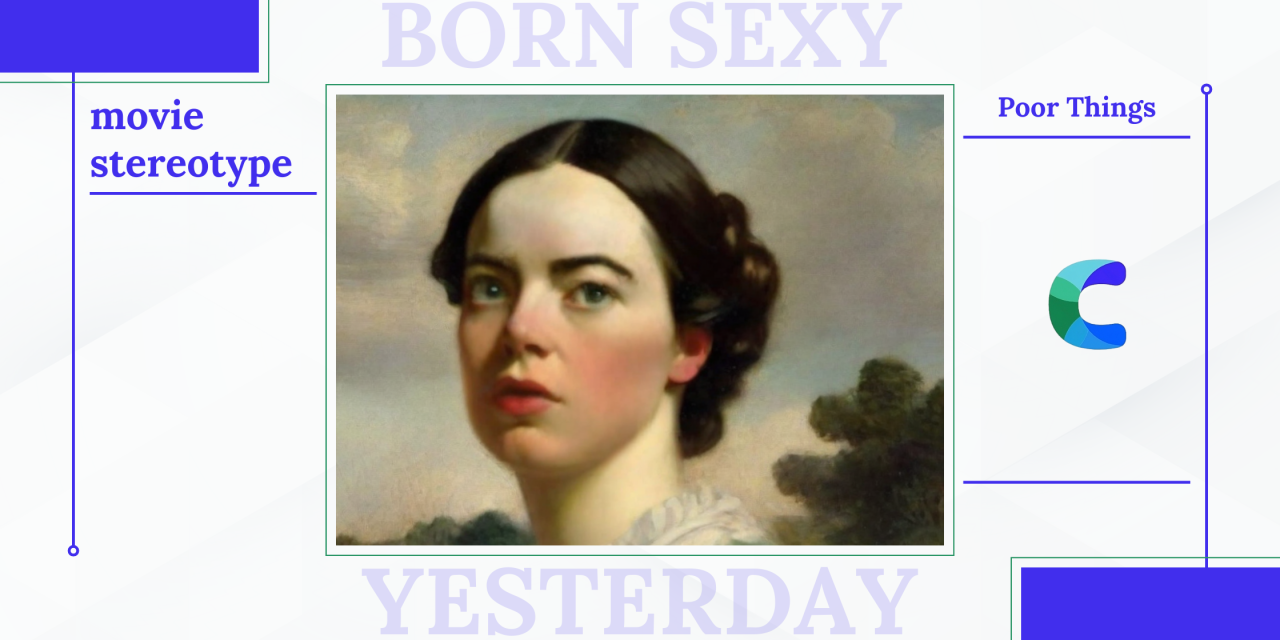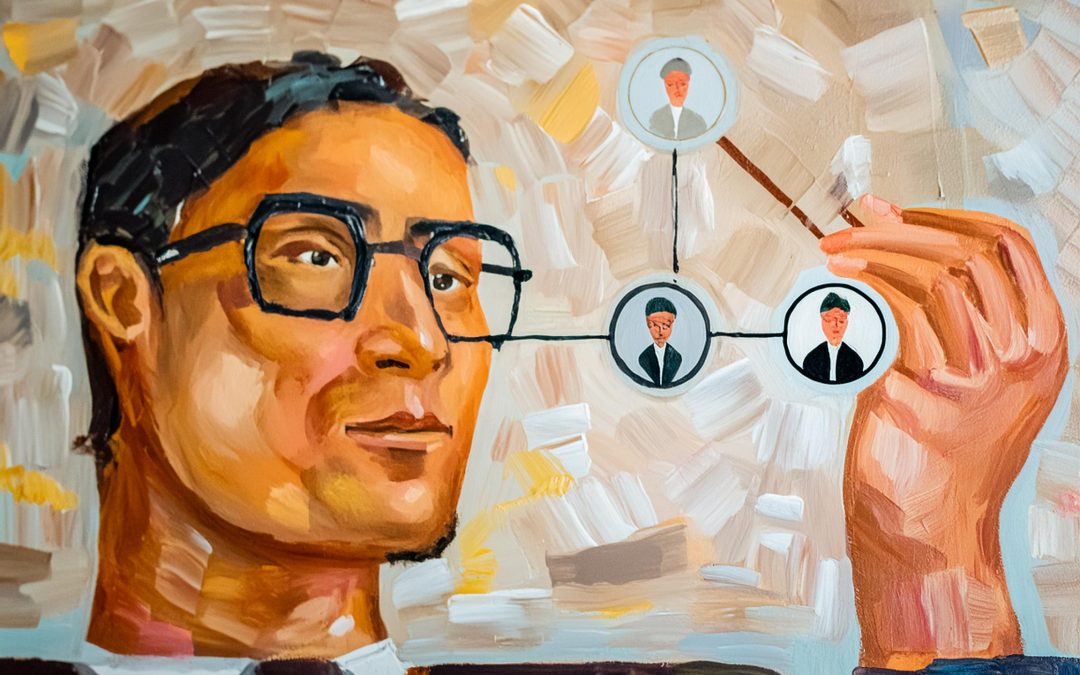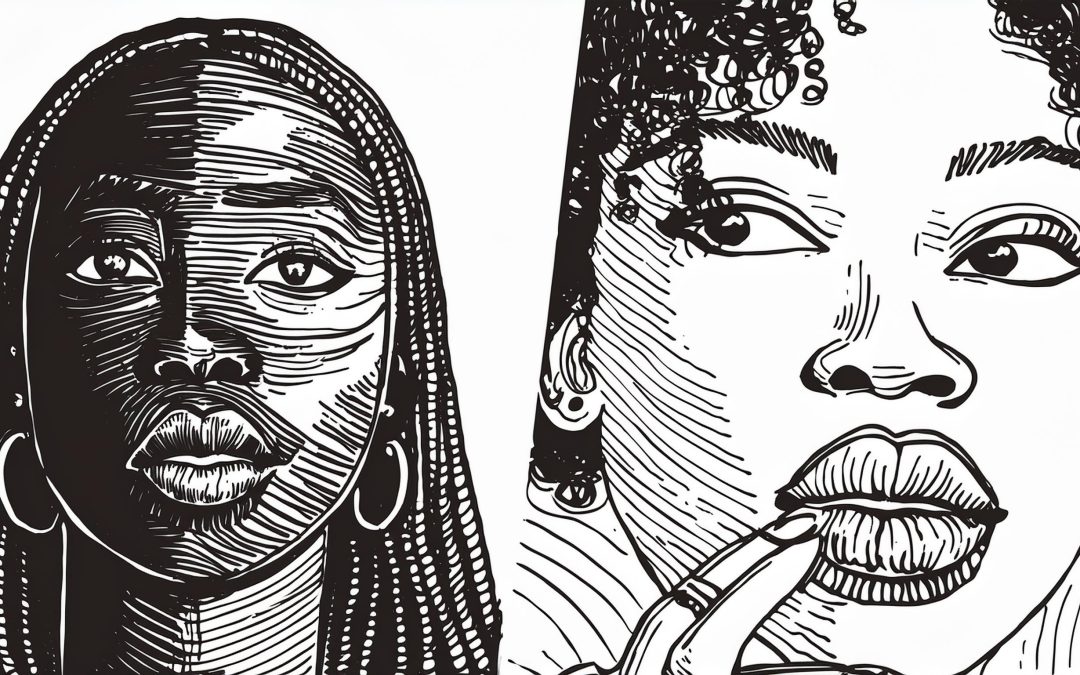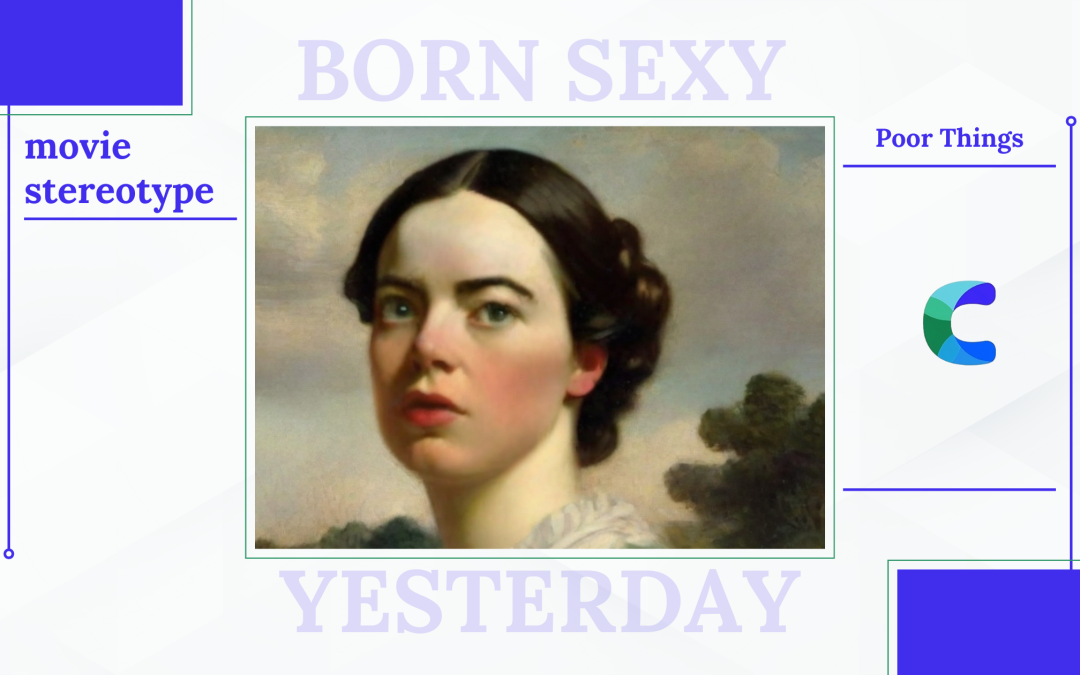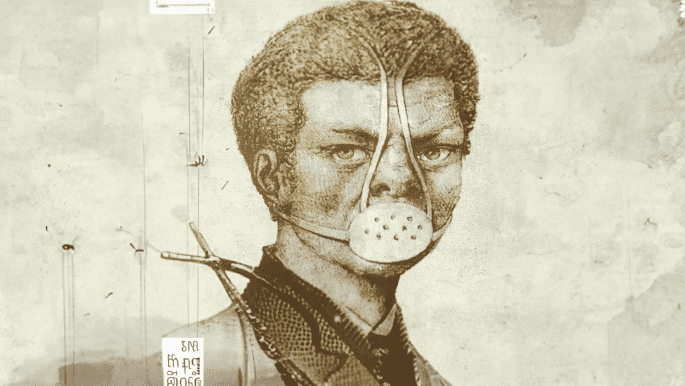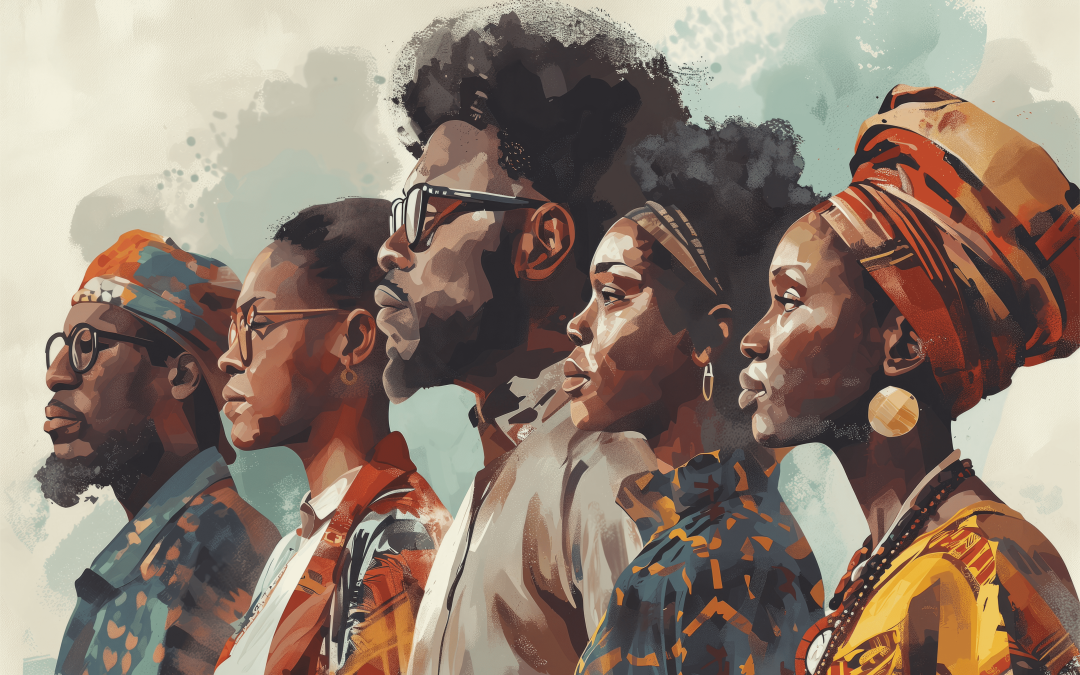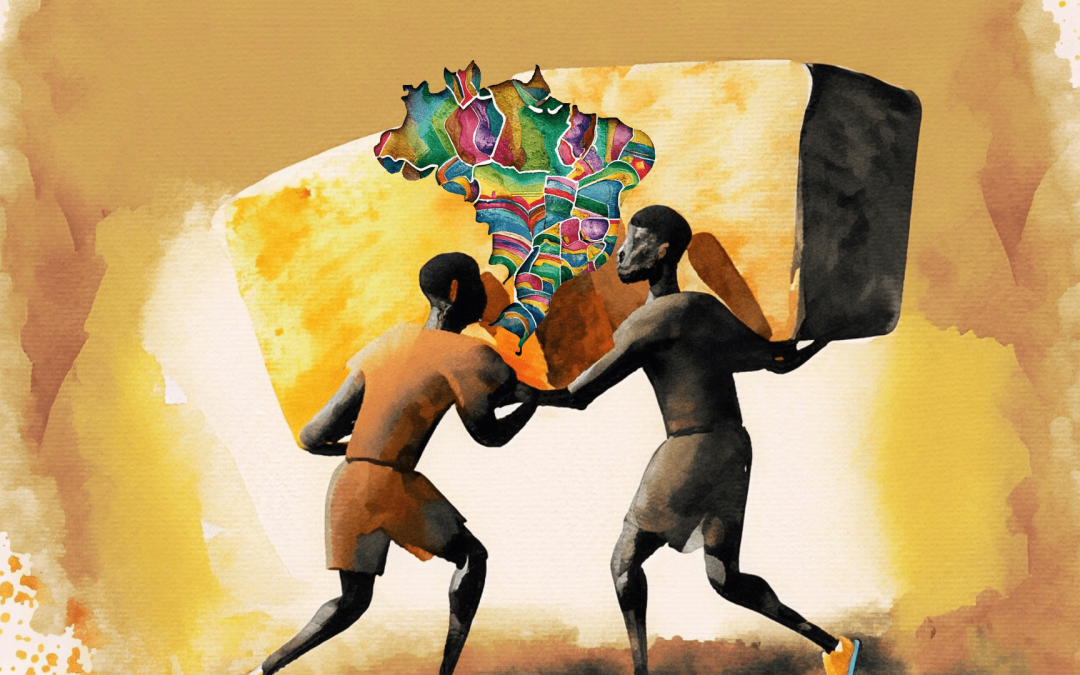Today we're going to talk about a movie stereotype so ubiquitous that it could compete with popcorn in movie theaters. It's called "Born Sexy Yesterday," and no, it's not the title of a low-budget romantic comedy.

This cliché introduces us to a woman who is as innocent and pure as a newborn baby, but with the difference that she looks like a supermodel who has just come out of a photo shoot for a magazine cover. The idea is that this poor creature, usually from another world or dimension, lands on Earth with no idea how anything works here. And, of course, she needs a very “wise” man (read: the average male protagonist) to teach her all about life, love and how to use a fork.
But what’s behind this stereotype? Well, my friends, it’s a clever way to fetishize female innocence and, at the same time, keep women’s freedom at bay. Because, let’s be honest, if the heroine doesn’t know how to open a door, she’s unlikely to run for president or lead an intergalactic rebellion.
So the next time you see a movie with a “born sexy yesterday,” remember that there’s more at stake than just a lazy plot. It is a reflection of how society sometimes views women: as beings that need to be protected, educated and, above all, controlled. But don’t worry, we’re here to change the script and give these heroines the epic adventures and autonomy they deserve.
Subverting stereotypes: "Poor Things "and the AI revolution.
In a world saturated with clichés and stereotypes, the “Born Sexy Yesterday” trope stands out as a glaring example of the fetishization of innocence and the objectification of women in the media. This trope, deeply rooted in the science fiction and fantasy genres, constructs female characters who possess a childlike naiveté coupled with an unrealistic level of sexuality. However, “Poor Things,” an extraordinary film, challenges and subverts this worn-out narrative, just as AI technologies are reshaping and redefining the landscape of the newsroom industry.
Before delving into “Poor Things,” it is critical to understand the origins and implications of the “Born Sexy Yesterday” trope. This trope presents female characters as innocent but seductive creatures whose appeal lies in their supposed inexperience and vulnerability. These characters are often created to satisfy the male gaze, perpetuating harmful stereotypes and reflecting a superficial understanding of female autonomy and complexity.
Why does Bella's character stand out in Poor Things?Why Bella's Character Stands Apart:
Beef entre Kendrick y Drake: ¿Qué Opinaría William Lynch?
Bienvenidos a la última temporada del drama interminable del rap! En esta esquina, tenemos a Kendrick Lamar, rompiendo récords a diestra y siniestra con su nuevo hit “Not Like Us”, que alcanzó los 100 millones de streams en tan solo 9 días, superando a "God's Plan" de Drake. En la…
Unmasking Algorithmic Racism: The AI Circus Unleashed!
Keywords #AlgorithmicRacism #AIbias #MitigationEfforts #InclusiveTechnology #EthicalAI #DigitalRights Ladies and gentlemen, gather 'round the digital campfire as we unveil the mesmerizing spectacle of algorithmic racism! 🎩✨ Yes, you heard it right—the greatest show on silicon earth! Imagine a world where AI systems, those seemingly neutral automatons, moonlight as undercover bigots. They’ve…
Wagner Group: A New Colonialism in Africa’s Hard Times
In a tragicomic twist that even Shakespeare himself would not have dared to imagine, Wagner, an obscure Russian mercenary group, has emerged on the African stage with the finesse of an elephant in a china store. With one foot in Libya and the other in the Central African Republic, these mercenaries
Unbelievable Youthforia Controversy: When Makeup Turns into Blackface Nightmare
Welcome to another episode of "What Were They Thinking?" featuring none other than Youthforia, the makeup brand that decided to give us a masterclass in how not to do inclusivity. Yes, we’re talking about that foundation shade—so dark, so devoid of undertones, it might as well be blackface makeup from…
Unveiling Mestizaje: The Blurred Lines of Race and Identity in Latin America
Introduction to Mestizaje: The term mestizaje is a prismatic concept, reflecting a kaleidoscope of racial and cultural intermingling that has been a cornerstone of Latin American identity for centuries. It's more than just a word; it's the embodiment of a historical tapestry, woven from the threads of indigenous, African, and…
Silent Genocide in Congo: a deadly deal?
- Do you have any questions? CONTACT US Maybe you're just curious about what we do or maybe you just want to say 'hello'. We are all ears. In fact, we love to have a good chat. It's like we're your local hairdresser, ready to listen, always with a joke…
Born Sexy Yesterday: How “Poor Things” is subverting stereotypes?
Today we're going to talk about a movie stereotype so ubiquitous that it could compete with popcorn in movie theaters. It's called "Born Sexy Yesterday," and no, it's not the title of a low-budget romantic comedy. This cliché introduces us to a woman who is as innocent and pure as…
Advertisements for the Sale of Enslaved Persons? A critical look
The advertisements for the sale of enslaved individuals during the era of slavery are an indelible stain on humanity's evening dress, remaining the perfect reminder of our capacity to be terribly cruel to one another. Although we officially left it behind (on paper, because in practice, well, you know...), the…
Chinese Lunar New Year for Afro-descendant Populations: Connecting the disconnected
The Chinese Lunar New Year, also known as the Spring Festival, is not just a pivotal event within China but has grown to captivate a global audience. Marked by vibrant displays of cultural richness, it encapsulates themes of renewal, hope, and the ushering in of prosperity. Its influence stretches across…
Black History Month: A Legacy of Struggle and Triumph
Welcome to the annual "Let's remember African Americans exist this month because apparently, we forget for the rest of the year" celebration. Black History Month, that time of the year when we parade our love for diversity with more zeal than a Benetton ad campaign, aims to honor the contributions…
10 Racist realities facing Blacks in Brazil
Afro-Brazilians face various challenges and forms of discrimination in contemporary Brazilian society. These problems are rooted in the country's history, marked by slavery, colonialism and structural racism. Despite efforts to address these issues, progress has been slow, and Afro-Brazilians continue to experience significant disadvantages and institutionalized discrimination[2][3]. Some of the…
Beyond Sexual Liberation: Bella’s character arc defies the limitations imposed by the “Born Sexy Yesterday” trope by exploring a broader range of existential issues, embracing her agency and defying societal expectations.
Critique of ideologies: While Bella flirts with various ideologies, “Poor Things” criticizes the superficiality of embracing ideologies without genuine commitment, paralleling the challenges posed by the integration of AI into the ethical framework of writing. Narrative control: Bella emerges as a fully developed protagonist, directing her own destiny rather than serving as a plot device for the male characters.
AI in copywriting: Just as “Poor Things” dismantles stereotypes, AI technologies are reshaping the landscape of the copywriting industry. AI is no longer limited to menial tasks, but has become an indispensable co-creator that enhances both creativity and efficiency. In many ways, the evolution of the AI mirrors Bella’s journey, breaking free from predefined roles and exploring the uncharted realms of possibility.
Analysis of the film
“Poor Things” (2023), directed by Yorgos Lanthimos, is a film that presents a vibrant fantasy story set in a distorted version of Victorian-era Europe, highlighting the frivolities of society through a feminist and class-conscious lens. The film follows Emma Stone as Bella Baxter, a socialite who, after committing suicide, is resurrected into a Frankenstein-like human being by eccentric surgeon Godwin Baxter, played by Willem Dafoe. As Bella slowly learns to move, speak and function as a human in the surgeon’s house, she longs for the outside world. After finding a way out by traveling with Duncan Wedderburn, a lawyer played by Mark Ruffalo, she leaves her cramped quarters to venture into the unknown, embarking on a fantastic odyssey of female growth and sexual liberation.
The film is based on Alasdair Gray’s 1992 novel, “Poor Things Poor Things: Episodes from the Early Life of Archibald McCandless M.D., Scottish Public Health Officer.” Although “Poor Things” has Lanthimos’ usual style, it distinguishes itself from his other works by being unabashedly fantastical and vibrant. His previous films stand out for their absurd plots and the dispassionate performance of the actors. In “Poor Things,” the weirdness that prevents many from seeing a Lanthimos film is elevated to its maximum, thanks in part to the performances of the actors.
The film has been praised for its subversion of the Born Sexy Ayer trope, a common trope in science fiction and fantasy in which a female character is portrayed as sexually attractive and sexually available despite being young, naive or inexperienced. Instead, the film presents Bella Baxter as a character who is in control of her own sexuality and experiences, and who is not objectified or sexualized for the pleasure of the male characters or the audience.
Overall, “Poor Things” is a film that challenges traditional gender roles and stereotypes, and offers a unique and fantastic take on the coming of age story. While not without flaws, it is an entertaining and bizarre film for fans of science fiction and black comedy.

